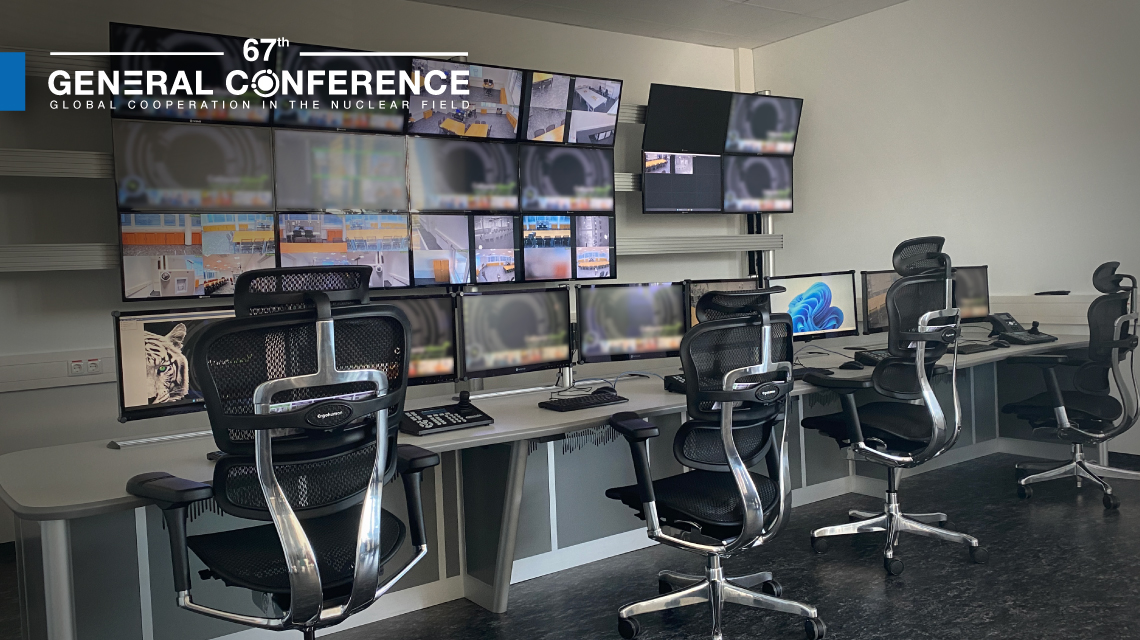A sneak preview of the first ever international Nuclear Security Training and Demonstration Centre (NSTDC) and the training activities planned to start in October 2023 was given today during a side event held at the margins of the 67th IAEA General Conference
A sneak preview of the first ever international Nuclear Security Training and Demonstration Centre (NSTDC) and the training activities planned to start in October 2023 was given today during a side event held at the margins of the 67th IAEA General Conference.
Lydie Evrard, IAEA Deputy Director General and Head of the Department of Nuclear Safety and Security, highlighted the unique nature of the new IAEA facility, noting that “the NSTDC is built to respond to growing requests by countries for capacity building in the field of nuclear security that could not be met elsewhere.”
“The IAEA has developed a training programme that will complement the existing national and international mechanisms of nuclear security capacity building,” said in her remarks.
The NSTDC is housed in a new multipurpose building (MPB) located at the IAEA’s laboratories in Seibersdorf, 30 km south of Vienna, Austria. The MPB construction work started in July 2021, after the Director General of the IAEA, Rafael Mariano Grossi, broke ground for the new facility.
Under the NSTDC training programme, there are currently 23 training courses and workshops. All of them address training needs in the area of physical protection of nuclear and other radioactive material and associated facilities; and in the area of detection and response to criminal or intentional unauthorized acts involving or directed at nuclear or other radioactive material, associated facilities or associated activities.
Considering the IAEA work for cancer care, the NSTDC training programme includes a course for countries anticipating in or planning to join the Rays of Hope titled “Introduction to life cycle security of radioactive material and associated facilities in cancer care”. The course aims to familiarize participants with key considerations towards ensuring life cycle security and sustainability of radioactive material and associated facilities used for cancer care, including information and computer security aspects of nuclear security.
“The NSTDC is a modern, specialized training facility, supported by state-of-the-art technical infrastructure,” said Marina Labyntseva, Head of the Education and…



